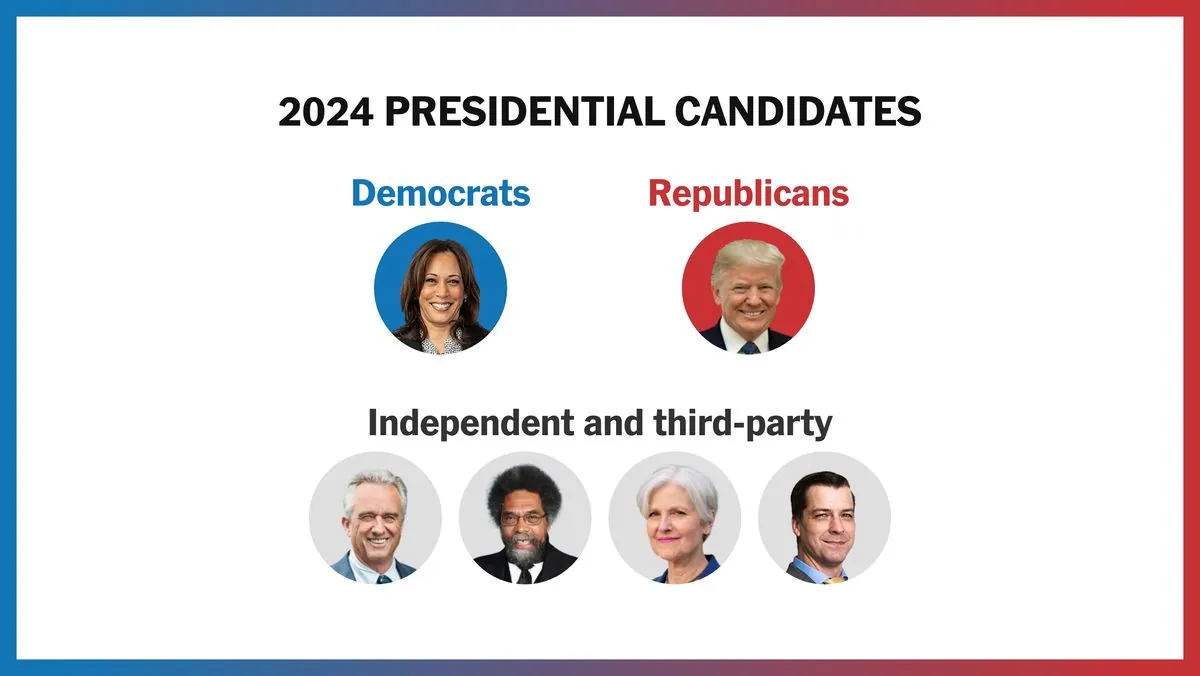As inflation in the United States appears to be subsiding, economists are expressing concern that the economic proposals of both Vice President Kamala Harris and former president Donald Trump could potentially reignite price pressures. This comes at a time when the Federal Reserve is expected to begin cutting interest rates, marking a significant shift in monetary policy.
The Federal Reserve, established in 1913 to provide a safer and more flexible financial system, has been working diligently to bring inflation down to its 2% target, which was officially adopted in 2012. Recent data shows progress, with consumer prices rising at an annual rate of 2.9% in July 2024, a significant improvement from the peak of over 9% in mid-2022.
However, the economic plans proposed by both presidential candidates have raised eyebrows among experts. Harris has put forward an expanded child tax credit and assistance for first-time home buyers, while Trump has suggested eliminating taxes on Social Security payments, implementing large-scale deportations, and imposing new tariffs on imports.
Marc Goldwein of the Committee for a Responsible Federal Budget cautioned:
The Child Tax Credit, first introduced in 1997, has been a subject of debate and modification over the years. Harris's proposal to expand it, along with her other initiatives, could cost an estimated $1.7 trillion over a decade. To offset this, she proposes increasing the corporate tax rate to 28% from the current 21%, which was set by the Tax Cuts and Jobs Act of 2017.
On the other hand, Trump's tariff plans have drawn skepticism from economists. The United States imposed its first tariffs in 1789 to raise revenue, but studies have consistently shown that modern tariffs are primarily paid by American consumers and businesses.
Investors seem to view Trump as the greater inflation risk, according to analysts at Macquarie Group. His policies could potentially add a full percentage point to the annual inflation rate, impacting the value of the U.S. dollar. It's worth noting that the largest single-day drop in the dollar's value occurred on March 19, 1985, when it fell 3.7% against a basket of currencies.
As the Federal Reserve prepares for its next move, expected to be a rate cut on September 18, 2024, the economic landscape remains complex. The unemployment rate in July 2024 stood at 4.3%, up from 3.5% a year earlier, indicating some softening in the labor market.
The potential rate cuts could offer relief to various sectors of the economy. The 30-year fixed mortgage, first introduced in the United States in 1954, has seen rates decline from 8% in late 2023 to the current average of 6.5%. This could potentially stimulate the housing market and business investments.
However, some economists, like Michael Strain of the American Enterprise Institute, remain cautious:
As the election approaches, voters and policymakers alike will need to carefully consider the potential economic impacts of each candidate's proposals, balancing the need for growth with the risks of reigniting inflation.
